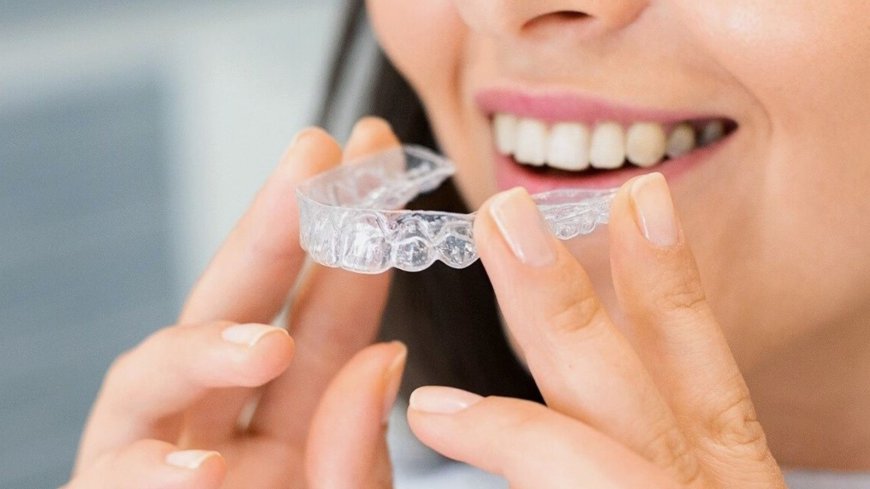How Dentists Treat Tooth Sensitivity: Causes and Solutions
Tooth sensitivity is a common condition that can significantly impact your quality of life, but it is treatable with the help of a dentist. By identifying the underlying cause of your sensitivity, your dentist can recommend a tailored treatment plan to reduce discomfort and prevent further damage to your teeth.

Tooth sensitivity, also known as dentin hypersensitivity, is a common dental issue that can affect individuals of all ages. It occurs when the underlying layer of your teeth, called the dentin, becomes exposed. The dentin is usually protected by enamel, the hard outer layer of your teeth, but various factors can lead to its erosion or damage. This exposure often results in sharp, sudden pain or discomfort when consuming hot, cold, sweet, or acidic foods and beverages.
While tooth sensitivity can be bothersome, the good news is that dentists have a variety of treatment options to address the condition and offer relief. Understanding the causes of tooth sensitivity is the first step toward finding the appropriate solution.
Causes of Tooth Sensitivity
Tooth sensitivity can stem from a number of factors, both environmental and lifestyle-related. The primary cause of sensitivity is the exposure of the dentin due to the thinning or loss of enamel. Enamel erosion can occur because of several reasons:
1. Poor Oral Hygiene: Brushing too aggressively or using a hard-bristled toothbrush can wear down enamel over time. Additionally, neglecting to brush or floss regularly can lead to plaque buildup, which contributes to enamel loss.
2. Gum Recession: Gum disease or poor oral hygiene can lead to gum recession, which exposes the sensitive roots of the teeth. Since the roots do not have protective enamel, they are particularly vulnerable to irritation.
3. Diet and Acidic Foods: Frequent consumption of acidic foods and beverages, such as citrus fruits, soda, or wine, can erode enamel. This continuous exposure to acids weakens the tooth's protective layers, making the dentin more exposed and sensitive.
4. Teeth Grinding and Jaw Clenching: Habitual grinding or clenching of the teeth, often due to stress, can wear down enamel and increase the risk of sensitivity. This issue is more common during sleep and can lead to both tooth damage and gum recession.
5. Dental Procedures: Certain dental procedures, such as professional cleanings, fillings, or teeth whitening treatments, may cause temporary sensitivity. In these cases, the sensitivity usually resolves on its own within a short period of time.
Solutions to Treat Tooth Sensitivity
When you visit the dentist with complaints of tooth sensitivity, they will conduct a thorough examination to determine the underlying cause. Depending on the severity and cause of your tooth sensitivity, your dentist may recommend one or more of the following treatments:
1. Desensitizing Toothpaste: One of the most common solutions for mild tooth sensitivity is the use of desensitizing toothpaste. These toothpastes contain compounds that block the transmission of pain signals from the surface of the teeth to the nerves inside. Over time, the regular use of desensitizing toothpaste can help reduce sensitivity, providing relief for individuals who experience discomfort when eating or drinking.
2. Fluoride Treatments: For individuals with more severe sensitivity, fluoride treatments can help strengthen the enamel and reduce discomfort. Fluoride helps remineralize the tooth enamel, making it more resistant to decay and less sensitive. Your dentist may apply fluoride gel, foam, or varnish directly to the affected areas of the teeth. In some cases, fluoride mouth rinses may be recommended for daily use at home.
3. Dental Sealants: If the enamel erosion is extensive, your dentist may recommend applying a protective dental sealant to cover exposed areas. Sealants are thin, protective coatings that act as a barrier between your sensitive teeth and external stimuli like hot, cold, or sweet foods. They help reduce sensitivity and protect vulnerable areas from further damage.
4. Gum Grafting: If gum recession is contributing to tooth sensitivity, a gum graft may be recommended. This procedure involves taking tissue from another part of your mouth and grafting it onto the affected area to cover the exposed roots. Gum grafting can restore gum health, reduce sensitivity, and prevent further gum recession.
5. Root Canal Treatment: In cases where tooth sensitivity is caused by an underlying infection or deep decay, your dentist may recommend a root canal. A root canal procedure removes infected tissue inside the tooth and seals it to prevent further infection. This treatment is typically reserved for more severe cases of sensitivity where other methods have not provided relief.
6. Lifestyle Modifications: Dentists often recommend lifestyle changes to help prevent and manage tooth sensitivity. These may include switching to a softer toothbrush, brushing more gently, and avoiding acidic foods and drinks. Additionally, if you grind your teeth at night, your dentist may suggest wearing a custom-made mouthguard to protect your teeth from the damaging effects of clenching and grinding.
Conclusion
Tooth sensitivity is a common condition that can significantly impact your quality of life, but it is treatable with the help of a dentist. By identifying the underlying cause of your sensitivity, your dentist can recommend a tailored treatment plan to reduce discomfort and prevent further damage to your teeth. From fluoride treatments and desensitizing toothpaste to more advanced procedures like root canals and gum grafts, there are numerous solutions available to address tooth sensitivity effectively. If you're experiencing sensitivity, don't hesitate to seek professional dental care to ensure your oral health is maintained and your pain is managed.
